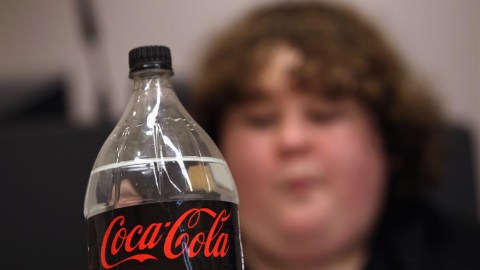Fats Aren’t Creating the Obesity Epidemic

When Gregor Mendel died in 1884, he was known by many as the crazy abbot who loved playing in his garden. He spent decades breeding plants in hopes of unlocking the secrets of heredity. Although he began recording his observations in 1856, the scientific community would not accept his ideas until 1900. Today he is recognized as the founder of genetics.
Sometimes we hold science up as a beacon when really researchers are clawing at dirt. Oddly, a discipline that’s always changing fights it at every step. Any theory that might overturn previously held assumptions is dangerous to the ego. The UK is going through one such identity crisis now.
Having spent tens of billions of pounds combating diseases such as Type 2 diabetes and obesity, the NHS (London Strategic Health Authority) is seeking ways to curb the nation’s growing problem. Like I recently wrote in this column, the National Obesity Forum has arrived at the same conclusion as American researchers: eat more fat.
Nutritional advice is often based on egregious research. Believe breakfast is the most important meal of the day? Think again. Connections between studies and marketing are rampant. That’s partly what fueled the low-fat fad. When a culprit (fat) was discovered, an entire industry was born.
The NOF, which recently published a controversial report, believes public health officials have been colluding with the food industry. The organization states that decades of promoting a low-fat, high-carbohydrate diet have done nothing to address obesity and related diseases; the numbers, along with consumers, are only growing larger.
Chairman of the Forum, professor David Haslam, says,
As a clinician, treating patients all day every day, I quickly realised that guidelines from on high, suggesting high-carbohydrate, low-fat diets were the universal panacea, were deeply flawed.
The organization draws parallels to the tobacco industry, with powerful lobbies and teams of researchers in its pockets. Today we’d laugh at anyone suggesting cigarettes do not cause cancer, though it took a half-century before effective regulations were put in place.
NOF officials took issue with Public Health England’s guidelines, which suggest twenty-two teaspoons of sugar each day are within acceptable limits. That number is shocking, considering that last year the World Health Organization cut its suggested dosage to six teaspoons per day. (It should be noted that both organizations are referring to added sugars, not those that come from eating fruits and other whole, unprocessed foods.)
The NOF offers ten points for creating a healthier nutrition lifestyle based on its findings of the latest research:
As the organization notes, half the population in many European countries is now overweight or obese. The UK is projected to reach 71 percent by 2025 if trends continue, putting it on par with America’s waistline.
Public Health England has already called the report ‘irresponsible.’ Other experts claim the problem isn’t nutrients but calories, even though this approach is provably false. American nutrition labels are receiving an overhaul containing the same error, with a sizable focus on calories over where those calories are derived. As James Hamblin writes,
Calories are one metric to consider among many—they tell us nothing other than, if we were to set fire to this food, how much energy would be released? It’s 2016, and that’s the metric we’re giving people to help them with this epidemic, which is the primary driver of the leading cause of death. We are doing this even while we know that imploring people to simply eat less has repeatedly proven to be an ineffective approach to obesity.
Such thinking would be fine if the low-fat, low-calorie diets humans have been enduring for three decades resulted in positive results. The opposite is true, making you wonder how much pull the food industry has with the FDA (probably a lot). A rethinking of what and how we consume is desperately needed, and it seems that all our governing bodies do is point in the wrong direction.
—
Image: General Photographic Agency / Getty Images
Derek Beres is a Los-Angeles based author, music producer, and yoga/fitness instructor at Equinox Fitness. Stay in touch @derekberes.





